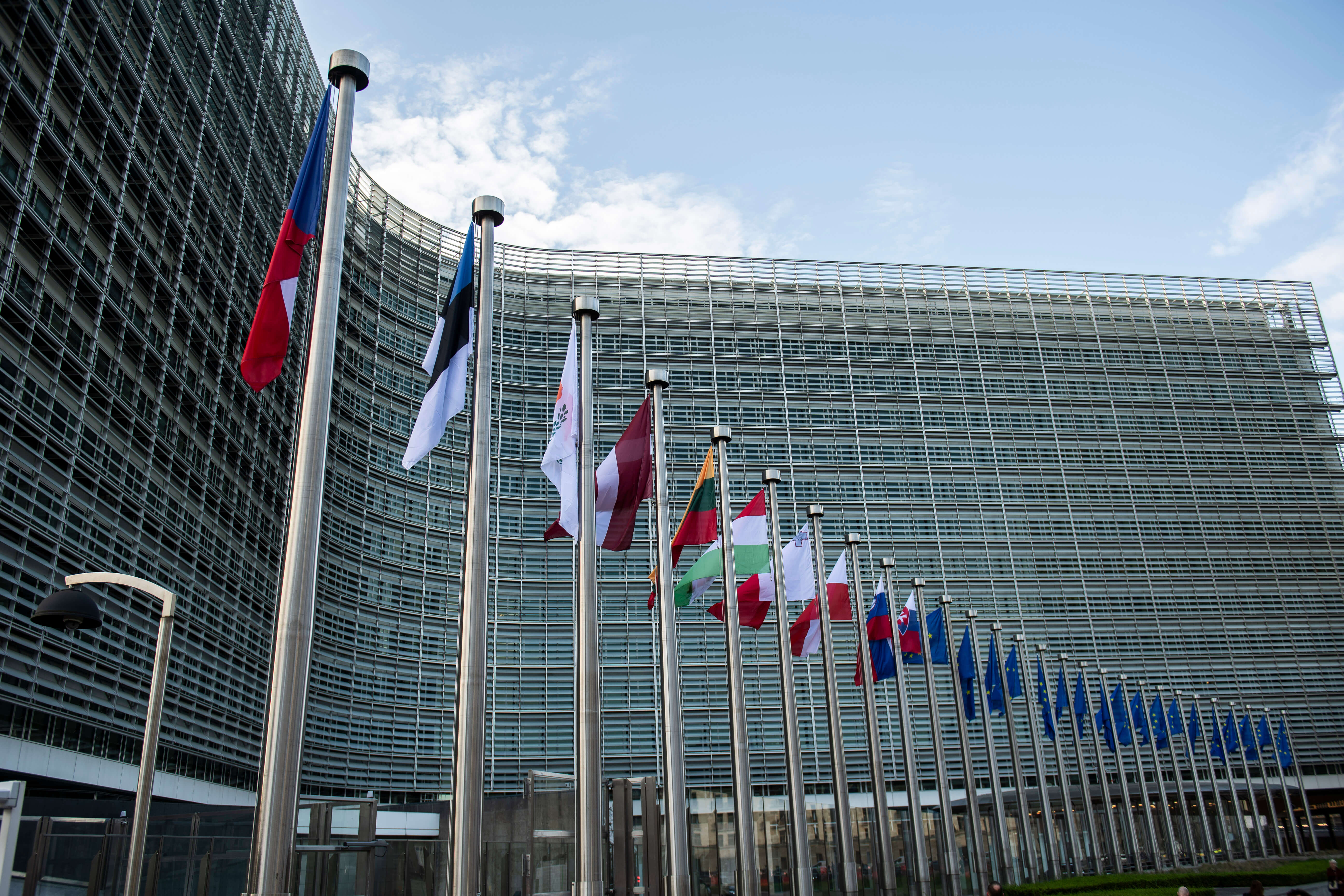The European Union has unveiled its much-anticipated AI Continent Action Plan, a bold, headline-grabbing initiative to propel the EU to the front of global artificial intelligence development. Or is it?
The plan is ambitious, and Europe is framing itself as a builder instead of just a regulator for the first time in years. It's tempting to be swept up in the buzz of it all.
But beneath the surface, I ask myself, is this a genuine leap towards AI leadership or a well-crafted performance masking a lack of readiness? Let's dig in and do a deep dive.
What Is the AI Continent Action Plan?
At its core, the AI Continent Action Plan is a comprehensive strategy by the European Commission to create a cohesive AI ecosystem across the 27 member states.
It aims to leverage and synchronise existing initiatives, including Horizon Europe, Digital Europe, and the recently announced AI Factories. If you missed my article on AI factories, you can read it here.
The plan spans several layers:
· Infrastructure: Build out pan-European compute capacity, including sovereign AI clouds and regional supercomputing hubs.
· Innovation: Channel investment into AI startups, research labs, and industry-specific applications of AI (think green tech, healthcare, manufacturing).
· Skills: Launch AI training programmes at scale to plug Europe's talent gaps, both through upskilling and new academic pipelines.
· Ethics and Governance: Harmonise the AI Act and GDPR with real-world innovation, making sure regulation doesn't become a bottleneck.
· Sovereignty: Reduce dependence on foreign cloud providers and AI chips, reclaiming control over Europe's technological backbone.
On paper, it's the kind of moonshot we've been waiting to see, big, bold, and unapologetically European. But that's the thing with moonshots. They sound great until you have to build the rocket. And we know North America leads the race there. Hello SpaceX, I'm looking at you.
The EU's Identity Crisis in Tech
To understand the true weight of this announcement, we need to zoom out and consider the EU's long-standing tension between innovation and regulation.
Europe has led the world in digital ethics for the past decade, creating globally influential standards like the General Data Protection Regulation (GDPR).
Europe became the champion of the "human-centric" AI narrative. And yes, that moral stance matters. In a world flooded with deepfakes, surveillance capitalism, and algorithmic bias, someone needs to stand for rights, fairness, and transparency.
Europe became a place where AI talent often left, drawn by better funding, faster experimentation, and looser rules elsewhere
But here's the inconvenient truth, you don't win tech races with ethics alone.
While the EU was refining definitions and holding hearings, the US birthed generative AI unicorns, and China embedded AI into state strategy, pouring billions into military, commercial, and academic initiatives.
Europe, by contrast, became a place where AI talent often left, drawn by better funding, faster experimentation, and looser rules elsewhere.
This action plan feels like an attempt to reconcile this divide, to say, "Yes, we're ethical, but we can move fast too."
But can they? Or is Europe still too caught up in its own complexity?
Regulation vs. Velocity
One of the most urgent tensions the plan doesn't fully resolve is the conflict between the speed AI development demands and the safeguards the EU insists upon.
Just ask Google, which warned last year that the AI Act's restrictive compliance requirements could slow the deployment of advanced AI models in the region. Startups, too, have voiced frustration at having to navigate layers of legal uncertainty while their competitors across the Atlantic iterate freely.
It's worth reminding that AI is not patient. It waits for no one.
 If European innovators are forced to clear bureaucratic hurdles while their rivals sprint ahead, the innovation gap will widen, not close - European Commission
If European innovators are forced to clear bureaucratic hurdles while their rivals sprint ahead, the innovation gap will widen, not close - European Commission
Generative AI models like GPT, Claude, and Gemini are evolving at breakneck speed. Open-source LLMs are gaining traction. Multimodal systems are becoming a reality. If European innovators are forced to clear bureaucratic hurdles while their rivals sprint ahead, the innovation gap will widen, not close.
So the question isn't just whether Europe has the intent. It's whether it has the agility.
The Other Side of the Coin
Now, I don't want to come across as a cynic, you know me, I always look at the positive side. The truth is, Europe has some incredible cards to play.
Research Depth: Europe is home to some of the finest AI minds on the planet, from INRIA in France to the DFKI in Germany to powerhouse universities in Sweden, the Netherlands, and beyond. Europe does not lack talent; they are just not always good at keeping it. And that is a big challenge.
Diversity of Use Cases: Europe has a rich industrial base, including automotive, manufacturing, logistics, and healthcare, all of which stand to gain from AI augmentation. Unlike Silicon Valley, where consumer tech dominates, Europe can win by leading in industrial AI.
Trust Advantage: Thanks to GDPR and now the AI Act, Europe has a global trust brand. Countries looking to adopt ethical AI frameworks will likely look to Europe for guidance. That's geopolitical influence money can't buy.
We might just witness a renaissance if the AI Continent Action Plan can capitalise on these strengths while loosening the bureaucratic reins.
What's Next on the Roadmap?
The AI Continent Action Plan is just the overture in what promises to be a symphony of European digital ambition throughout 2025 and beyond.
In the coming months, we expect the launch of EU AI Cloud Consortiums, designed to give researchers and startups sovereign access to massive compute power, one of the most critical bottlenecks in AI development today.
The AI Startup Accelerator Programme will also roll out across member states, aiming to fast-track innovation through funding, mentorship, and a tightly connected ecosystem.
 The world needs a force that fuses progress with principles. And perhaps, just perhaps, Europe can be that force
The world needs a force that fuses progress with principles. And perhaps, just perhaps, Europe can be that force
Looking ahead to 2026, the EU plans to unveil its Quantum-AI Convergence Strategy to blend quantum computing and AI into a strategic frontier where Europe already holds strong academic and research assets.
Also, a Green AI Directive, a policy designed to embed environmental responsibility into the very algorithms and data centres that will shape our future.
But once again, it's execution, not intention, that will separate legacy from lip service.
Is This Europe's Moment? I want to believe that Europe is turning a corner and that this isn't another Brussels policy drop that fades into oblivion. And I say this because I spoke and moderated a Brussels EU event full of policymakers and decision-makers a few years ago, and I saw much talk that fizzled away.
I want to believe that Europe is finally ready to act with urgency, not just idealism, but based on my experience of a few decades, I have some doubt. Belief requires evidence. And Europe still needs to prove that it can build fast, fund big, and scale aggressively.
The world doesn't need another AI superpower that treats people like data points. It needs a force that fuses progress with principles. And perhaps, just perhaps, Europe can be that force.
For this to happen, it must retain its talent, cut the red tape, supercharge its compute capabilities, and yes, learn to take risks. Because in AI, the risk of doing nothing is far greater than the risk of failing fast. That is a lesson that applies both to business and life.
From the wise observer to the bold innovator
Quoting the Action Plan: "Europe must become more than the world's conscience, it must become its catalyst."
It's time Europe moved from being the wise observer to the bold innovator. From building frameworks to building futures. From watching others shape tomorrow to shaping it ourselves.
Will the AI Continent Action Plan ignite a movement, or will it be remembered as another missed opportunity?
Compared to the USA or China, I have always felt that Europe sometimes takes the Spanish approach of "mañana, mañana" (tomorrow, tomorrow), which is great as part of a lifestyle, but in business, they are often waiting for someone else to do it first.
So here's the question I'll leave you with: will the AI Continent Action Plan ignite a movement, or will it be remembered as another missed opportunity?